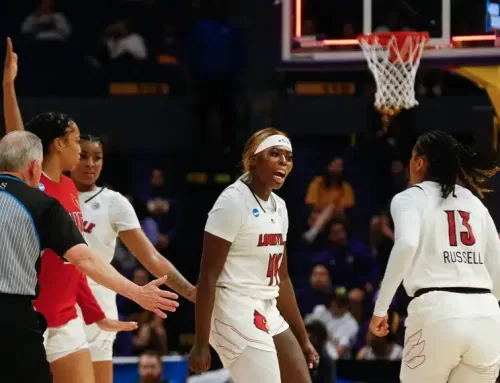By Rachel Hugenberg
Heart attacks – most people know someone who has had one. It may have been a parent, a cousin or a teacher.
According to the American Heart Association, heart attacks are the leading cause of death in the United States.
For the past 40 years, the National Institute of Health has been working to find a drug that helps protect the heart from heart attacks.
Thus far, there hasn’t been much success. But the University of Louisville is trying to change that.
A new $9.56 million grant was given to U of L’s Dr. Roberto Bolli, an endowed chair professor, and his team for a preclinical study on cardioprotective medicine.
The study is named Consortium for Preclinical Assessment for Cardioprotective Therapies, and has been nicknamed the CAESAR Project.
“It’s such a dramatically different way of doing research,” said Bolli.
The study is a collaborative effort of four different institutions: U of L, Johns Hopkins University, Emory University and Virginia Commonwealth University.
As to the reason many past experiments have failed, several doctors have pointed to the fact that prior experiments were not standardized and only used one type of model at one lab.
To correct this issue, Bolli has set up the study so that each of the four different research centers will repeat the exact same experiment.
Dr. Maiying Kong, a professor of bioinformatics and biostatistics, is the statistician for this project. He is responsible for gathering the results from the four sites and analyzing the experimental data.
“We want to pool [the data] at one place and see if the experimental drug is effective in different centers and for different animal species,” said Kong.
The data for the study comes from cardioprotective drug tests on mice, rabbits and pigs.
According to those involved, this preclinical trial is already making U of L the leader in cardioprotective studies.
“This type of study never has been done in the lab,” said Dr. Yiru Guo, a professor of cardiology who works with the mouse model in the trial. “It is being done for the first time in the U.S.”
This study is also attracting attention for U of L, as students from Emory travel to U of L to see how the trial is being conducted.
There are high hopes that, in the future, the National Institute of Health will approve the research team’s proposal for a $12 million grant and a clinical trial.
“This is my brainchild,” said Bolli about the project.




